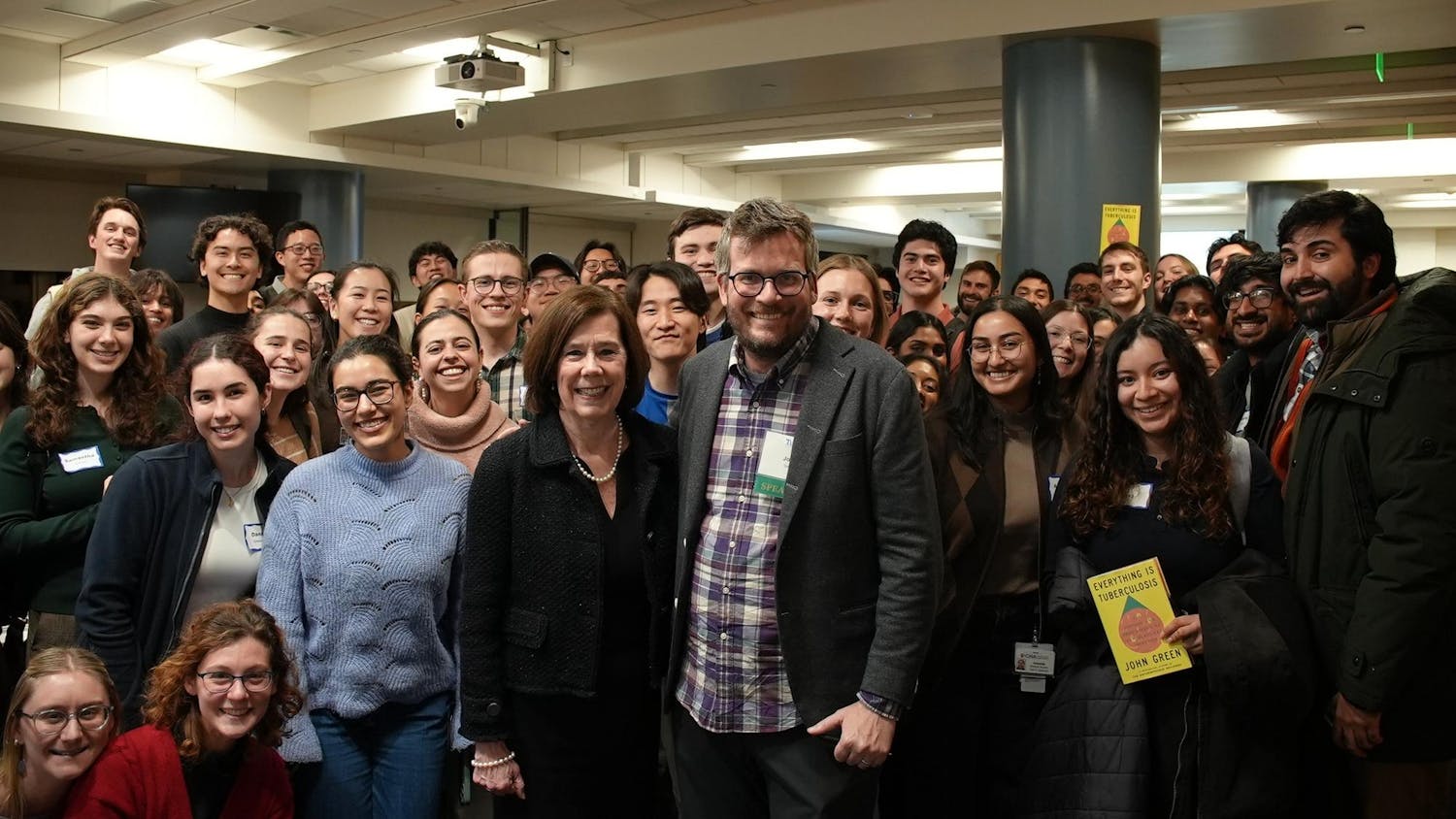Anjuli Fahlberg, a full-time lecturer in the sociology department, published an opinion piece in the Washington Post in September. She wrote about police brutality in Rio de Janeiro’s “favelas” — low-income, urban neighborhoods — which has been on the rise since Brazilian President Jair Bolsonaro and Rio de Janeiro’s Governor Wilson Witzel took office in January. Fahlberg met with the Daily to discuss how her background and research led to the writing and publication of this piece.
Tufts Daily (TD): Just to get a little background, what kind of sociology are you focused on and what classes do you teach?
Anjuli Fahlberg (AF): I’m a full-time lecturer, so I teach six different courses, and then I’ll be teaching a seventh one next semester. So last year, I taught intimate relations — sociology and family essentially — and I don't teach that anymore, but my regular rotation is political sociology, urban sociology, Latin American society, medical sociology, a seminar on intimate violence and I'll be teaching social theory in the spring.
TD: How did you become interested in or learn about the conflicts in Rio de Janeiro, and how did you come to start writing the piece?
AF: So I actually grew up in Rio. I moved to this country when I was 12. For about three years, I lost my language and my fluency; I was living in an English-speaking community. And then I started working at Dunkin' Donuts when I was 15. Everybody was Brazilian, and it became clear to me that my Brazilian roots were really important to my identity. And after that, I spent a lot of time volunteering at immigrant organizations, making really close friends with a Brazilian community here … After I graduated, I decided that I wanted to continue working with the immigrant population and I was also very involved in feminist issues, so I ended up spending five years working in domestic violence and sexual assault issues, particularly with Latina and Brazilian immigrants … I ended up already spending a lot of time working on issues of violence, of inequality, of really systemic problems … We actually spent a lot of time talking about welfare and discrimination in the workplace, their lack of access to transportation, housing, immigration court, criminal court, and I realized that all of these issues are interwoven and that individual experiences of violence also fit within these broader problems and structural inequality.
When I got to graduate school, I was really interested in studying violence. I really wanted to understand why people would commit domestic and sexual assault. And sociology gave me a lot of the tools to do that. But I also wanted to continue to do what I had always done, which was work in a community.
I was also very committed to what's called Participatory Action Research (PAR). And PAR, what we would call it, advocates for including your participants in decisions about "what do you study," which begins with the question of what matters to you, and what stories do you want the world to know? ... I asked people what stories they wanted the world to know … People said to me, everybody who comes here comes to study poverty and violence, and we want the world to hear the stories of the good things that people are doing … So my research was really dedicated to documenting the various forms of community organizing, social work, our culture and all of the ways in which people are using these to really try to improve the neighborhood and advocate for improvements in social development and social change more broadly. And that has been an incredible project.
By the time this op-ed came out, I had had this very long history of really close ties to favelas in Rio … Both the municipal and state levels of government have always tried to address violence through their policing apparatuses. And for the last 40 or 50 years, in large part informed by the War on Drugs, which is a global issue, really spearheaded by Ronald Reagan, the belief among policymakers is that the way that we handle drug, gang violence is through extreme militarized policing … What we end up seeing is both sides becoming increasingly militarized, and the consequences are bullets flying, schools shut down, businesses shut down, the bus routes that normally go through favelas get deviated, and so people can't get to work … A lot of really heart-wrenching stories were coming out of Rio’s favelas. And it was right around the time that all of the fires were burning in the Amazon and that had all of the world's attention. And so I remember that I had seen another one of these really sad videos that I talked about in the op-ed, and I just thought, “there is another fire burning in Brazil,” and this needs to get some attention.
TD: What was the writing process like for the article?
AF: Honestly, I wrote it in half an hour … I rewrote it after that. I actually worked with the Scholar Strategy Network, which is a national nonprofit organization that pairs scholars with the media ... My experience with the Washington Post was really great. They required citations for almost every single word, but there's something really valuable about having to go and find the sources and make sure that you've said everything exactly correctly. It actually has really restored my faith in at least some media outlets, that they're very, very thorough about ensuring that what they're putting out there, even though it's an opinion, it still has to be factually based.
TD: What do you hope people will get from the piece?
AF: I can tell you what my participants hope, which is that we rethink the assumptions that we have about gang territories. There is a fascination globally with drug gangs. And I think that that also has to do with a general fascination for violence … Because we are so fascinated with violence, we completely overlook everybody else … For my participants, the most important message is that even in these areas that have a lot of armed conflict and other types of local violence, the vast majority of residents are ordinary people who care deeply about their families and their community and who are trying very, very hard to survive.
The second message is that even though we do need to combat drug gangs in some way, this is not the way to do it. I am not opposed to government interventions that genuinely are trying to create a more safe and equitable society. But if that's what we're looking for, then we need to do that, and the way that we do that is by providing children who might someday enter gangs with alternatives. Children don't want to be in a gang, right? But they want to be able to provide for their families. They want to feel like they matter to society. They want to feel a sense of belonging. And if we don't provide alternative spaces, then the gang is there … The point is that all of this is connected, and that we have to resist the tendency to see them as the other, the dangerous, the violent, the impoverished other. We are all connected, we all play some role in perpetuating the problem, and we can all play some role in actually addressing the problem by putting out there different types of images about these places, by forging connections with activists or other types of community organizations that are trying to address this, by supporting feminist organizations that are trying to fight against violence. Those are the ways that we're actually going to create the kind of change that we want.
TD: What do you think students can do?
AF: What students might do is write an op-ed themselves. I think that students, like the rest of us, have become very accustomed to sharing our opinions on social media, and that’s something, but students, particularly at Tufts, are very, very good writers, and they know how to do research, and they're very passionate about issues … So I would encourage students to think about using this as a medium for advocating for whatever issues are important to them.
More from The Tufts Daily
Serve & Survey: Emotionally editing humanity
By
Jaylin Guzman
| February 20





